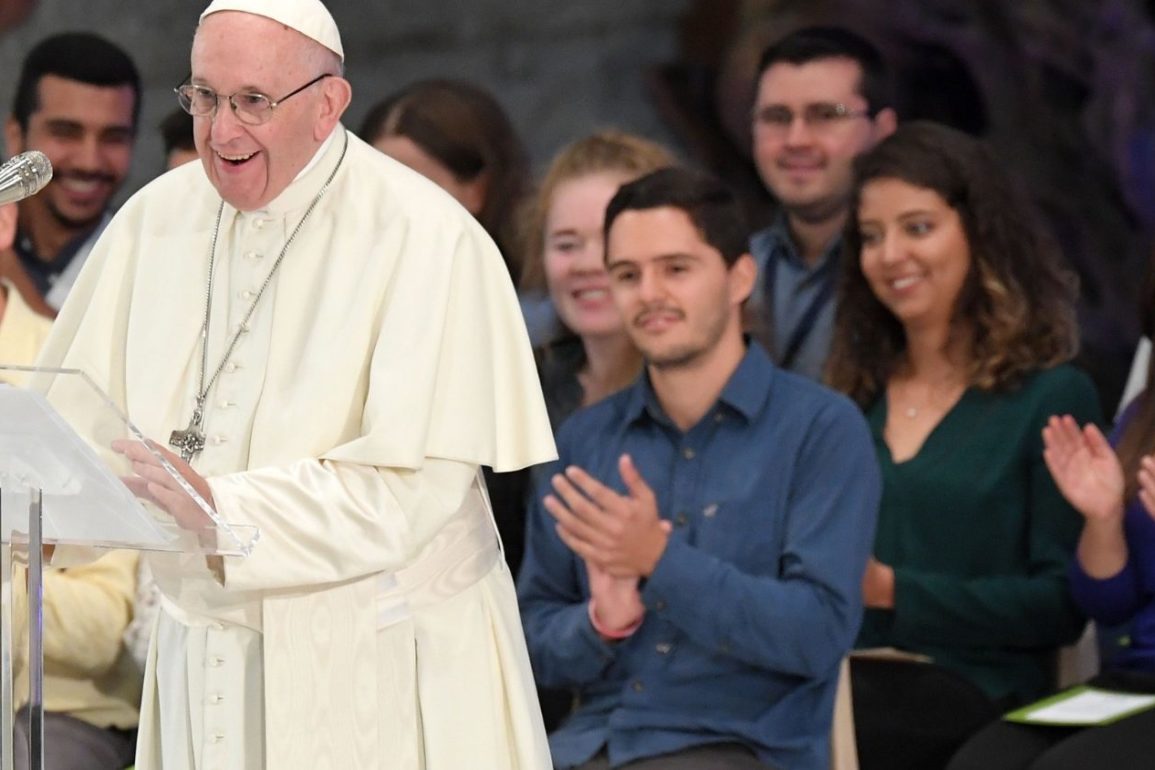Pope Francis opened the Synod on Synodality in the Vatican last weekend, October 9-10, 2021. The diocesan phase began in local Churches on Sunday, October 17.
“For a Synodal Church: Communion, Participation and Mission” is the motto of the 16th Ordinary General Assembly of the Synod of Bishops convoked by the Holy Father. The works will last three years and be articulated in three phases (diocesan and national, continental and universal) through consultations and discernment; they will conclude with the October 2023 Assembly in Rome.
“Dear brothers and sisters, good journey together! May we be open to the surprises of the Holy Spirit, the grace of encounter, of mutual listening. With the joy of knowing that it is the Lord who first comes to our encounter with His love,” said the Pope on his Twitter account, to accompany the dioceses in this process.
The Way of Synodality
“A Synod is a religious meeting or assembly in which some Bishops, gathered with the Holy Father, have the opportunity to exchange information mutually and to share experiences, with the common objective to seek pastoral solutions that have universal validity and application,” says the Synod’s Secretariat on its official profile. In other words, the Synod of Bishops is one of the organisms that help the Pontiff in his task of teaching and governing; it is a place of encounter and reflection in which hundreds of Prelates take part.
With this convocation, Pope Francis invites the whole Church to question herself on a decisive topic for her life and mission. “The way of synodality is, in fact, the way that God expects of the Church of the Third Millennium. In a certain sense, what the Lord asks of us is already contained in the word “Synod.” To walk together — Laity, Pastors, Bishop of Rome — it’s a concept that is easy to express with words but not so easy to put into practice,” said the Pope in his address during the ceremony to commemorate the 50th Anniversary of the institution of the Synod of Bishops, on October 17, 2015.
This itinerary, which is in the line with the Church’s “aggiornamento” proposed by Vatican Council II, “is a gift and a task: walking together and reflecting together on the way traversed, the Church will be able to learn, from what she is experiencing, what processes can help her to live communion, to realize participation and to open to the mission. This “walking together” is, in fact, “what the nature of the Church as a pilgrim and missionary People of God best undertakes and manifests,” states the Official Website of the Synod of Bishops.
In short, at the base of this Synod on Synodality is the desire to listen to the faithful at all levels, parishes, dioceses, Episcopal, and Continental Conferences before taking any important decision of Government.
Three Phases
In the presentation of the Preparatory Document of the 16th Ordinary General Assembly of the Synod of Bishops, Monsignor Luis Marin de San Martin, the Synod’s Under-Secretary, highlighted three objectives of the consultation at the diocesan level: “It must be true, the broadest possible and practical, not theoretical.” The one responsible is the diocesan Bishop, who “will also have to be concerned with the dimension of prayer.” He “will be able to appoint a contact person, if possible a team that reflects the variety of the Church and conclude with a Synodal Assembly in every diocese. Coherence, enthusiasm, creativity, and courage are the keywords.”
The Assembly and debate in each diocese will end with the sending of a Document of the respective Episcopal Conferences; the latter will write a national Document and also transmit to the Vatican the diocesan texts. With that data, the Synod’s General Secretariat will elaborate a first working Document that the Bishops’ Continental Conferences will study. Thus the process will continue with pre-synodal meetings at the Continental level, to give the broadest possible participation and the seven final Documents will serve to prepare the Instrumentum Laboris (Working Instrument) that will be given to the Assembly of Bishops.
Translation by Virginia M. Forrester










